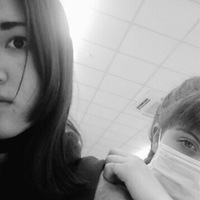
Какой герой и при каких обстоятельствах произносит приведенные ниже слова: "Терпи, козак, -
атаманом будешь!", "Что, сыночку, помогли тебе твои ляхи?", "Есть ли ещё порох в пороховницах?"? Как вы их понимаете? В каких Жизненных ситуациях они могут быть произнесены и сегодня? 0
0
 0
0
Ответы на вопрос
 Внимание! Ответы на вопросы дают живые люди. Они могут содержать ошибочную информацию, заблуждения, а также ответы могут быть сгенерированы нейросетями. Будьте внимательны. Если вы уверены, что ответ неверный, нажмите кнопку "Пожаловаться" под ответом.
Внимание! Ответы на вопросы дают живые люди. Они могут содержать ошибочную информацию, заблуждения, а также ответы могут быть сгенерированы нейросетями. Будьте внимательны. Если вы уверены, что ответ неверный, нажмите кнопку "Пожаловаться" под ответом.

The Hero and Circumstances of the Quotes
The quotes "Терпи, козак, - атаманом будешь!" ("Endure, Cossack, and you will become an ataman!"), "Что, сыночку, помогли тебе твои ляхи?" ("What, little son, did your Poles help you?"), and "Есть ли ещё порох в пороховницах?" ("Is there still gunpowder in the powder flasks?") are associated with the character of Taras Bulba, a legendary Ukrainian Cossack hero. Taras Bulba is the protagonist of the historical novella "Taras Bulba" written by Nikolai Gogol in 1835.
In the novella, Taras Bulba is a fierce and proud Cossack leader who fights against the Polish nobility in the 16th century. The quotes reflect his strong and determined character, as well as his disdain for the Poles, who were seen as oppressors by the Cossacks.
Interpretation and Relevance Today
1. "Терпи, козак, - атаманом будешь!" ("Endure, Cossack, and you will become an ataman!"): This quote can be understood as a call for perseverance and endurance in the face of challenges. It implies that by enduring hardships, one can rise to a position of leadership or authority. Today, this quote can be used to encourage someone to stay strong and keep pushing forward in difficult circumstances, with the belief that their efforts will lead to success and recognition.
2. "Что, сыночку, помогли тебе твои ляхи?" ("What, little son, did your Poles help you?"): This quote reflects Taras Bulba's contempt for the Poles and his belief in the superiority of the Cossacks. It can be interpreted as a rhetorical question challenging someone's reliance on others for help or support. In a modern context, this quote can be used to question someone's dependence on external assistance or to express skepticism about the effectiveness of such help.
3. "Есть ли ещё порох в пороховницах?" ("Is there still gunpowder in the powder flasks?"): This quote refers to the readiness for battle and the availability of resources. It can be understood as a question about preparedness and the ability to take action. In contemporary usage, this quote can be employed metaphorically to inquire about someone's readiness or capacity to handle a situation or to express a need for action.
These quotes from Taras Bulba's character can be applied in various life situations to convey messages of resilience, self-reliance, and preparedness. They can serve as motivational phrases, expressions of skepticism, or calls to action, depending on the context in which they are used.
 0
0
 0
0
Топ вопросов за вчера в категории Литература
Последние заданные вопросы в категории Литература
-
Математика
-
Литература
-
Алгебра
-
Русский язык
-
Геометрия
-
Английский язык
-
Химия
-
Физика
-
Биология
-
Другие предметы
-
История
-
Обществознание
-
Окружающий мир
-
География
-
Українська мова
-
Информатика
-
Українська література
-
Қазақ тiлi
-
Экономика
-
Музыка
-
Право
-
Беларуская мова
-
Французский язык
-
Немецкий язык
-
МХК
-
ОБЖ
-
Психология
-
Физкультура и спорт
-
Астрономия
-
Кыргыз тили
-
Оʻzbek tili




















